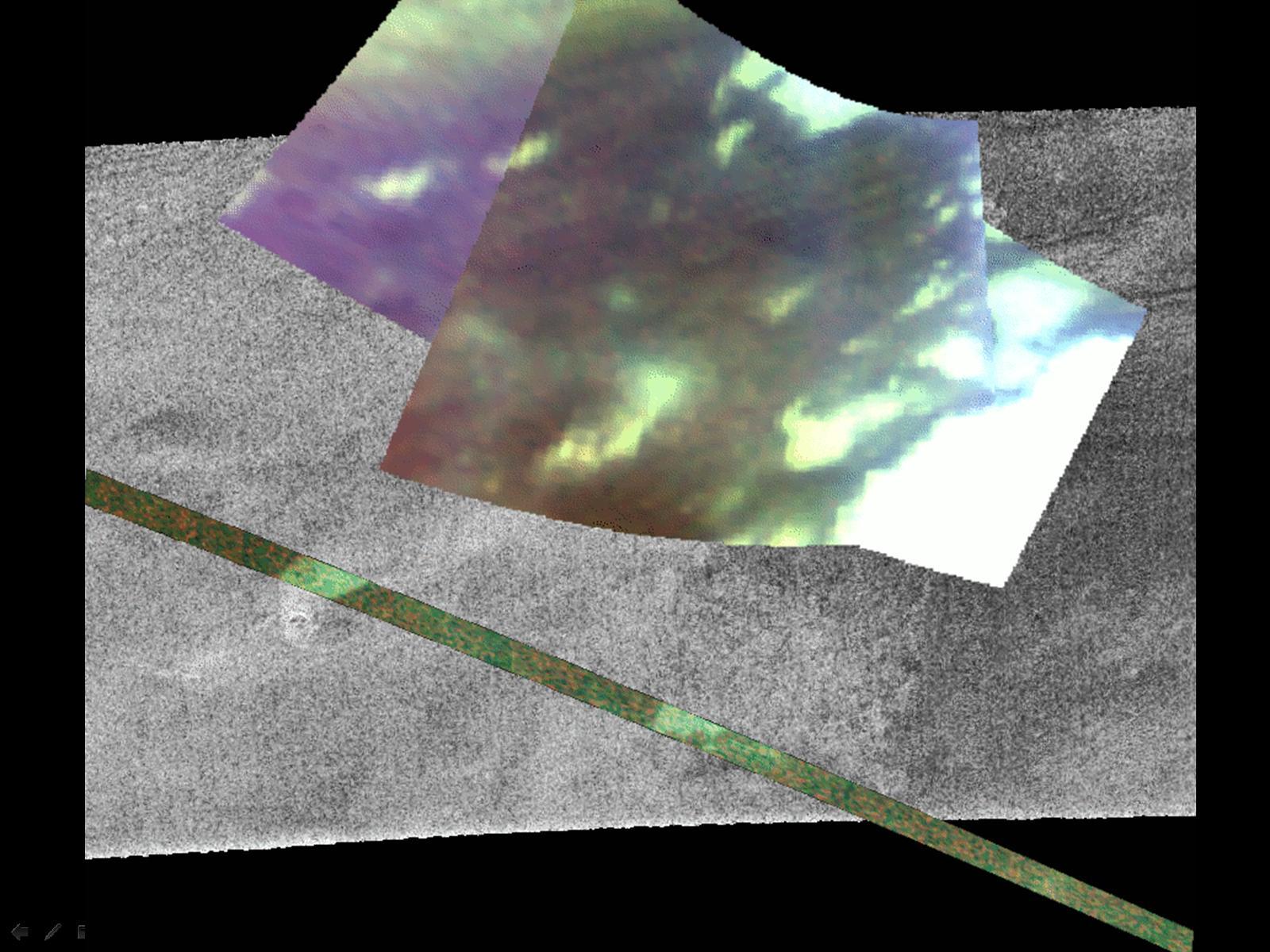Infrared and Radar Views of Titan #2

| PIA Number | PIA09036 |
|---|---|
| Language |
|
This image composite contains a radar image taken during a February 2005 (T3) flyby, and overlaid are images from the visual and infrared mapping spectrometer taken on Sept. 7, 2006, (T17) and Oct. 25, 2006 (T20).
The thin strip is the infrared image taken on the inbound leg of the T20 flyby and crosses the radar image near an area with a small, crater-like feature. In the radar image a faint fan of material seems to originate at the crater, and the portion of the infrared image that crosses the faint fan shows both a large brightness contrast and very sharp boundaries. The fan-like deposit has such sharp boundaries and strong contrast with its surroundings that it supports the idea that the deposit seen in the radar images is a flow of material erupted from the small crater. This may be the strongest evidence yet of cryovolcanism on Titan. The infrared image was taken at a distance of 1,100 kilometers (680 miles) from the surface of Titan and resolves features as small as 400 meters (1,300 feet).
The infrared images were taken at wavelengths of 1.3 microns shown in blue, 2 microns shown in green, and 5 microns shown in red.
The Cassini-Huygens mission is a cooperative project of NASA, the European Space Agency and the Italian Space Agency. The Jet Propulsion Laboratory, a division of the California Institute of Technology in Pasadena, manages the mission for NASA's Science Mission Directorate, Washington, D.C. The Cassini orbiter was designed, developed and assembled at JPL. The Visual and Infrared Mapping Spectrometer team is based at the University of Arizona where this image was produced. The radar instrument was built by JPL and the Italian Space Agency, working with team members from the United States and several European countries.
For more information about the Cassini-Huygens mission http://saturn.jpl.nasa.gov/home/index.cfm . The visual and infrared mapping spectrometer team homepage is at http://wwwvims.lpl.arizona.edu.
Credit: NASA/JPL/University of Arizona
